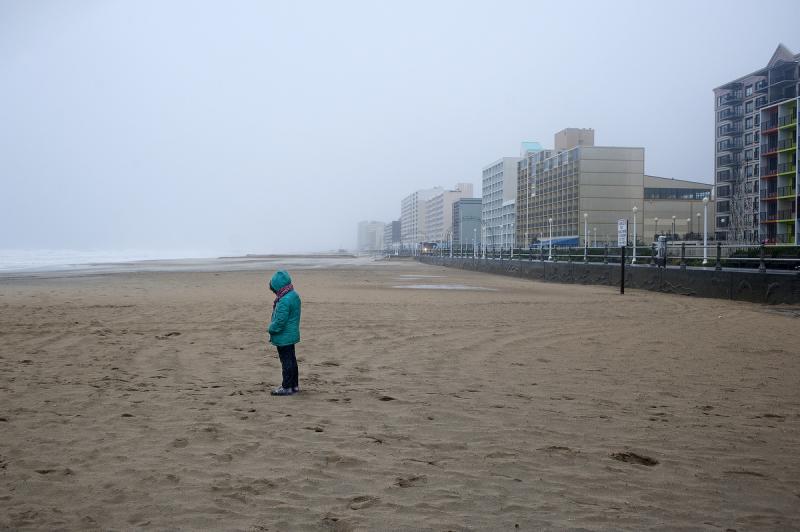
A beachgoer along the oceanfront observes the effects of high wind and heavy rain as Hurricane Sandy begins to arrive in Virginia Beach, Virginia, October 28, 2012. Credit: Reuters/Rich-Joseph Facun
reuters.com - by Deborah Zabarenko - February 27, 2013
(Reuters) - The signs of rising water are everywhere in this seaport city: yellow "Streets May Flood" notices are common at highway underpasses, in low-lying neighbourhoods and along the sprawling waterfront.
Built at sea level on reclaimed wetland, Norfolk has faced floods throughout its 400-year history. But as the Atlantic Ocean warms and expands, and parts of the city subside, higher tides and fiercer storms seem to hit harder than they used to.
Dealing with this increased threat has put Norfolk at the forefront of American cities taking the lead on coping with intense weather, from floods to droughts to killer heat, without waiting for the federal government to take the lead.
(READ COMPLETE ARTICLE)
Recent Comments